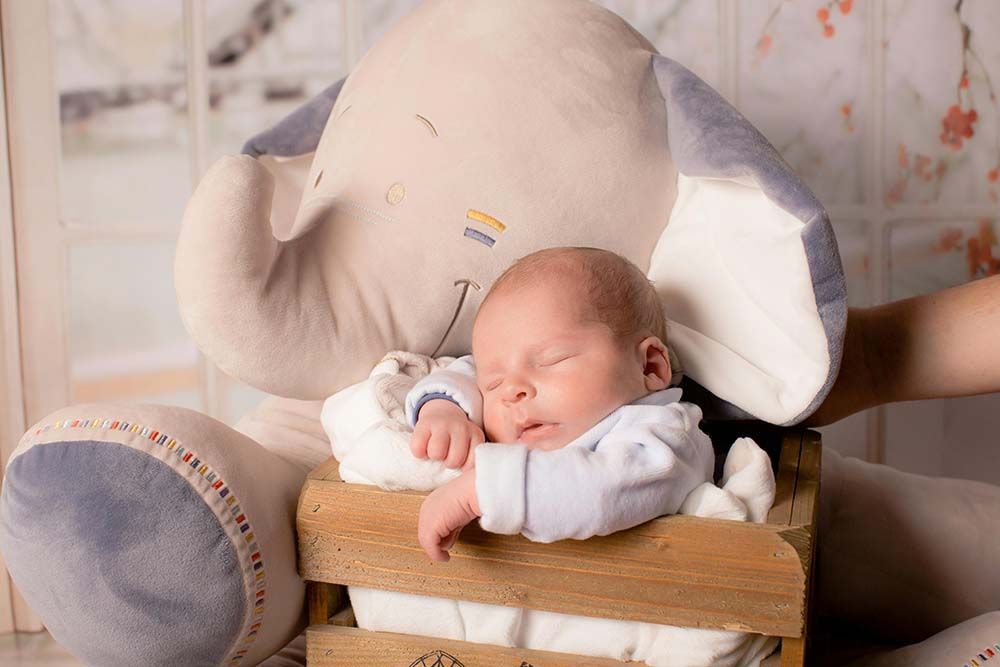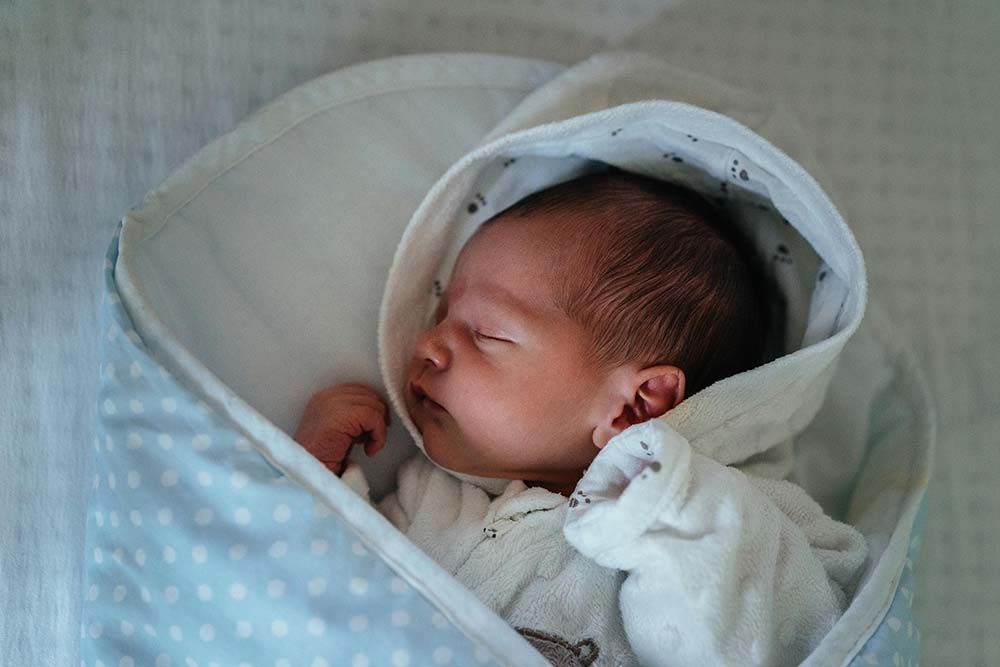

As your baby reaches the six-month milestone, they often develop a more consistent sleep pattern with regular naps. At this age, your baby spends more time awake, engaging in playful activities, and may even sit up independently. In this guide, we'll share a typical sleep schedule for a six-month-old and offer tips to manage any potential sleep resistance.
To plan your day more effectively, our Schedule Creator tool in the Moonycare app provides a personalized daily sleep schedule that is finely tuned to your baby's specific age and sleep needs. This tool simplifies the process of managing nap times and wake periods, making it easier for you to organize your activities around your baby's routine.
IN THIS ARTICLE:
What are Wake Windows for a 6 Month Old?
A Sample Sleep Schedule for 6 Month Old Babies
How Much Should a 6 Month Old Sleep?
How Long Should a 6 Month Old Nap?
How Many Naps are Suitable for a 6 Month Old?
Can you Sleep Train a 6-month-old?
Is there Sleep Regression for 6 Month Old Babies?
What are Wake Windows for a 6 Month Old?
The wake windows for a six-month-old typically span from 2 to 3 hours. Through observation, we can see that wake windows are short in the morning, and gradually extend as the day progresses and the baby grows. If you 6-month-old baby still take naps as before, they may have difficulty in getting into the last nap. If so, you can take consideration into prolong the wake windows by 15 minutes to consume their energy. And it is normal if the bedtime is postponed accordingly.
Sample 6 Month Old Sleep Schedule
How Much Should a 6 Month Old Sleep?
The total sleep duration of a 6-month-old baby is expected to be approximately 14 hours per day. However, bear in mind that the sleep requirements of babies can vary, and there is a spectrum of what is regarded as normal and healthy. The recommended hours should be seen as a general guideline, and it's equally crucial to evaluate your child's mood and energy levels to ensure they are obtaining adequate rest.
Some 6-month babies will naturally shift from the irregular newborn sleep patterns to a regular schedule. And it is normal that some will still be uncontrollable, especially since another sleep regression might emerge this month.
How Long Should a 6 Month Old Nap?
At six months of age, our aim concerning daytime sleep amounts to 3 to 4 hours in total. Ideally, the primary two naps will respectively endure for 60 - 90 minutes. The final nap is typically shorter, roughly 30 - 45 minutes. It is acceptable that the length of each nap might fluctuate on a daily basis. The crucial is to make sure your baby obtain adequate wake windows between the permitted daytime sleep.
How Many Naps are Expected for a 6 Month Old?
6-month-old babies are expected to take 3 naps a day. If your baby is still possessing short naps more than 3 times, it can result in shorter naps and reduced night sleep after maintaining this schedule for an extended period. To address this, extend the awake period between naps and target three naps daily. This can accumulate sufficient sleep pressure to achieve longer periods of sleep.
As your baby grows older, it may be challenging for the baby to get into the third nap. Therefore, a consistent nap transition is necessary. It's normal for it to take 2 to 4 weeks before your baby is completely adjusted. Be patient and flexible with bedtime during this period!
Can you Sleep Train a 6-month-old?
You little one can sleep and wake up haphazardly at the first time of birth. Now that she has reached the six-month milestone, your little one is mature enough to develop a more regular sleep pattern and learn how to comfort herself. To be honest, sleep training can be beneficial, but it doesn't work for every baby.
It is not compulsory to undergo sleep training for your baby, but it might enable her to become a more proficient sleeper, particularly if she frequently has difficulty falling asleep at bedtime or during naps. There are several distinct and effectual sleep training approaches. One is the widely-known cry it out method, which recommends no parental interference, allowing the baby to self-soothe. Another is the Ferber method, which proposes some parental consolation that gradually reduces over the course of a few nights.
Is there a 6-Month Sleep Regression?
Yes. 6-months babies encounter sleep regression for numerous reasons. If you are encountering a sleep "regression" at six months, contemplate the following potential causes:
-
A great deal of growth takes place at this Your baby is undergoing a multitude of changes, including rolling over, babbling, and perhaps even crawling. All might leave her feeling exhausted and stimulated simultaneously, and she might betoo excited to fall asleep.
-
An increase in distributed feedings can also make effect. This can influence the volume of calories that your baby consumes throughout the day, which, in turn, might lead to night wakings as a result of hunger.
-
Separation anxiety can likewise give rise to sleep issues. Some babies might experience separation anxiety starting from 6 months old.
-
Sleep problems at six months old can also be an indication that your baby is prepared to shift from 3 to 2 naps.
Sleep Tips for 6-Month-Old Babies
Stick to a routine. Even if you're feeling so exhausted that you could drift off to sleep almost anywhere, your 6-month-old is not quite ready to nod off yet. To ensure she's sufficiently drowsy by bedtime, maintaining a consistent bedtime routine is crucial. Sticking to this routine can help signal to your baby that it's time to wind down and prepare for sleep, making the transition into a peaceful night's rest smoother for both of you.
Make sure her bedroom is comfortable. Your little one is more aware of what's going on around her now, so make sure her room is dark, quiet (a white noise machine can help), with the room temperature maintained between 68 and 72 degrees Fahrenheit to prevent her from becoming either overheated or chilled.
Don't cut back on naps. Although your child may require fewer naps, the quality of daytime slumber remains paramount. Adjustments to your daily schedule should be made to align with your baby's napping habits, encouraging crib-based naps to foster restorative sleep.
Promote physical engagement. Fostering an active lifestyle during waking hours can significantly enhance nighttime sleep. As your baby's energy levels and desire to hone newly acquired skills soar, engaging her in stimulating activities such as extended periods of tummy time, interactive games like peek-a-boo, practice crawling, and supported sitting. These will not only entertain but also exhaust her, thereby increasing the likelihood of a peaceful and uninterrupted night's rest.

























